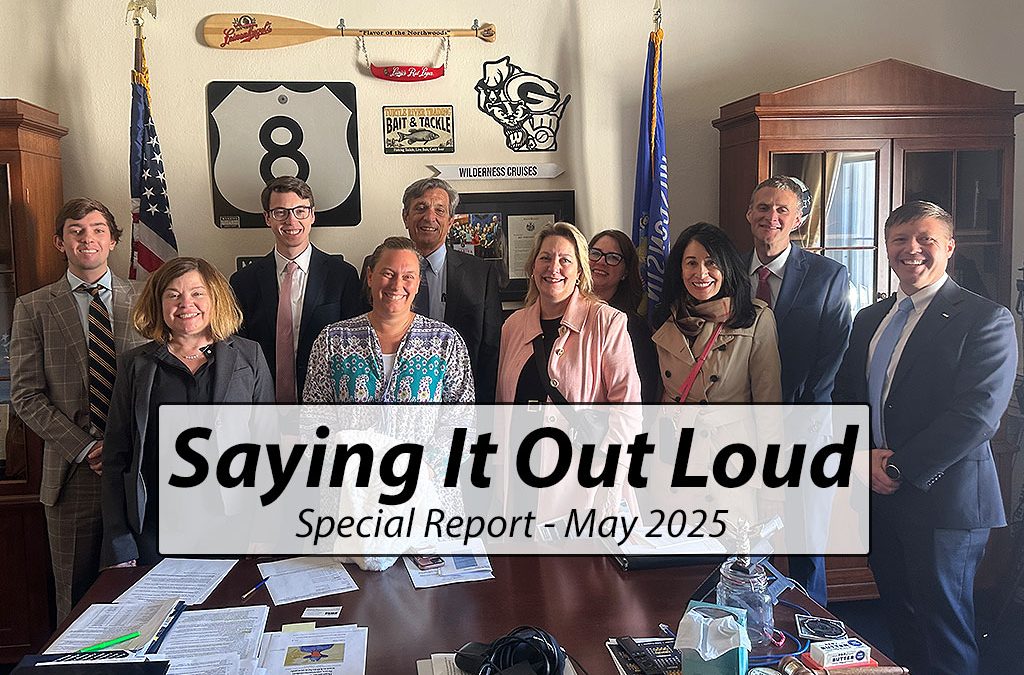Take the 2026 Family-Owned Business Survey
Who Should Pay More Taxes? Hard-Working Family-owned Businesses Are Caught in the Movement to ‘Tax the Rich’
Keeping Successful Family-Owned Businesses Strong, Creating Tax Policies to Help Middle-Tier Earners Will Continue the American Dream
There’s a belief that “the rich” don’t pay their fair share of taxes.
This belief ensnares successful families and the family businesses they own.
The results of this bias are movements to tax the rich, tax the billionaires, and generally find ways to tax the country’s top earners.
This group is a politically easy target. In the imagination of voters, taxpayers, the media, and the populace at large they are often portrayed as the bad guys.
To be sure, there is unfairness in our progressive tax system and the growing wealth gap in our country is concerning, but the reality of who pays what, and how much, may come as a surprise: The top 1% of earners pay 45.8% of all federal income taxes!
Internal Revenue Service data for the tax year 2022 (most recent statistics) shows the U.S. federal income tax system continues to show the highest-income earners pay the highest average personal income tax rates.
Little consideration is given to family-owned businesses, the country’s largest private employer.
Research shows that some 80% of family-owned businesses are structured not as traditional corporations, but as pass-through entities.
Current law helps reduce the tax burden on owners of pass-through entities, like sole proprietorships, partnerships, and LLCs, through a 20% deduction on qualified business income (section 199A). This brings the top 37% individual rate on such income down to 29.6%, which is closer to the 21% corporate rate (plus shareholder taxes on dividends they received). But the section 199A deduction expires at the end of this year if Congress fails to extend it or make it permanent.
These taxpayers, particularly those making between $178,611 and $261,591, really feel the pinch when it comes time to write big checks to the IRS. They pay an average income tax rate of 14.3 percent—almost five times the rate paid by taxpayers in the bottom half.
The Top 1 Percent: Easy Targets
No one feels sorry for the top one percent of earners, but facts are facts.
The top one percent of earners in the United States, those that make $663,164 or more, pay a tax rate (26.1%) seven times more than the bottom 50% of taxpayers, according to IRS 2023 figures.
Another fact from the IRS: the top one percent of earners paid $864 billion in income taxes while the bottom 90% paid $599 billion.
Of course, all of us pay more than federal taxes. But the total federal, state, and local taxes paid as a share of income is still higher for those at the top than for those at the bottom.
No one is suggesting the government penalize our lowest earners with higher personal taxes. Our country’s lowest earners, the bottom 50% who make under $50,399 a year, paid an average federal income tax rate in 2022 (most recent statistics available) of 3.7%.
Contrasting that, in 2021, the top 5% of earners, those with incomes of $252,840 and above, many being family-owned businesses using traditional pass-through entity structures, paid over $1.4 trillion in income taxes, or about 66% of the national total.
If you include the top 10% of earners, everyone who made $169,800 or above, the figure rises to $1.7 trillion, or 76% of the total. This means the top 50% of earners in this country contributed 97.7% of federal income tax revenue.
Let’s not forget, the top 1% of earners pay 45.8% of all federal income taxes.
So, our tax writers, those people we elect and place on Capitol Hill, have a tough needle to thread when it comes to income taxes and the cost of running our federal government.
Simply, we spend a lot more than we bring in.
The federal government generated $4.47 trillion in revenue in fiscal year 2023, nearly half of which came from taxing people on their incomes. Individual income taxes in FY 2023 totaled $2.18 trillion, or $6,499 per person.
But, in Fiscal Year 2024, the U.S. federal government spent approximately $6.8 trillion, or roughly 25% of the nation’s gross domestic product (GDP). Each year, this leaves something between $1.5 trillion to over $2 trillion in an annual budget deficit to be covered by loans in the form of Treasury notes.
The total budget deficit will continue to grow massively (approaching $37 trillion today) if lawmakers cannot find cuts in spending to make up for the expected continuation of the lower tax rates approved in the 2017 Tax Cuts and Jobs Act.
But where to cut?
There are six “buckets” lawmakers are looking at.
They are: Social Security (22% of spending), Medicare (14% of spending), Defense (13% of spending), Interest payments (13% of spending), Other Mandatory Spending (16% of spending), Non-Defense Discretionary Spending (15% of spending).
Hence, the search is on to find “soft targets” to tax, like successful high earners (i.e., family businesses), and easy areas to cut waste and services, or a combination of all of the above.
The one argument lost in this economic narrative is: How can we incentivize earners making $160,000 a year or more to grow their businesses, make more money, and move up the tax ladder?
How can we move earners in the bottom 50% to move into the top 50% percentile of taxpayers through entrepreneurship, business start-ups, and hard work?
And how can we support the family-owned businesses and successful individuals who create good-paying jobs and economic opportunity in the communities they serve?
This missing factor in the equation of taxation and spending cuts is: What are lawmakers doing to spark this kind of innovation and growth?
We cannot create a strong economic engine, fueled by family businesses, by a diet of taxation and cost cutting alone.
One answer is to find ways of creating the next generation of successful family-owned and operated businesses. This typically starts with capitalizing good ideas that grow and last, the core to America’s success.
We don’t want policies that choke the successful, the hardworking taxpayers who pay the most taxes. Congress can start by focusing the pending budget reconciliation bill on tax policies that maintain current tax rates, especially on family-owned businesses, and foster economic growth through policies that reward research, innovation, and investment in the United States.
We want policies that keep the family-business sector strong and healthy, while at the same time helping those in the middle tax brackets move up the economic ladder, so they can attain their own American Dream and take our country into a prosperous future.
We hope you've enjoyed this article. While you're here, we have a small favor to ask...
As we prepare for what promises to be a pivotal year for America, we're asking you to consider becoming a member.
The need for fact-based reporting of issues important to family owned businesses and protecting a lifetime of savings has never been greater. Now more than ever, successful families and family owned businesses are under fire. That's why Family Enterprise USA is passionately working to increase the awareness of issues important to family owned businesses built on hard work, while continuing to strengthen our presence on Capitol Hill. The issues we fight for or against with Congress in Washington DC include high income tax rates, possible elimination of valuation discounts, increase in capital gains tax, enactment of a wealth tax, and the continued burden of the gift tax, estate tax and generation skipping tax.
Family Enterprise USA promotes generationally owned family business creation, growth, viability, and sustainability by advocating for family businesses and their lifetime of savings with Congress in Washington DC. Since 2007, Family Enterprise USA has represented and celebrated all sizes, professions and industries of family-owned enterprises and multi-generational employers. It is a bi-partisan 501.c3 organization. Family foundations can donate.
#incometax #CapitalGainsTax #R&DExpensing #DontPunishSuccess #GrantorTrusts #StepUpinBasis #likeKindExchanges #AcceleratedDepreciation #EstateTax #Deathtax #wealthtax #taxLegislation #CongressionalCaucus #incometaxrates #repealestatetax #AdvocatingForFamilyBusinesses #FamilyOwnedBusiness #WomenOwnedBusiness @FamilyEnterpriseUSA #FamilyEnterpriseUSA #FEUSA


